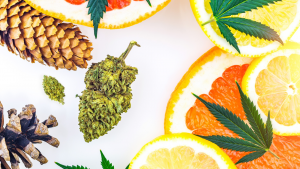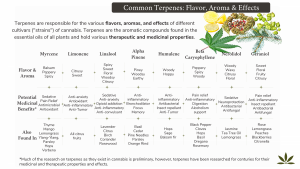Does Cannabis Make You Lazy? New Studies Dispel an Age-Old Myth
Many cannabis users will relate to feeling stigmatized at one time or another, mostly because cannabis use is misunderstood due to decades of myths permeating popular culture. One big myth medical cannabis users have to fight against is the idea that those who use cannabis are lazy, unmotivated, and would rather spend time channel surfing than being productive.
As medical cannabis users ourselves, we have felt this stigma, and have always known it’s not true. We have proven our effectiveness by building a brand new industry surrounding a plant that is valued and used by millions, while being forward-thinking innovators that push the limits of what the plant can do.
Finally, some research has emerged that will help those who hold their medical cannabis card prove what we already know: cannabis does not make you lazy.
Let’s look a bit closer.
The Origins of the Lazy Stoner Stigma
The lazy stoner stigma has been seen on screens big and small for decades. Think Sean Penn’s character Jeff Spicoli in Fast Times at Ridgemont High, or The Dude in The Big Lebowski, or every character that Seth Rogen has ever played. We also have been told for decades, particularly as a result of Reefer Madness, the War on Drugs, and Nancy Reagan’s ‘Just Say No’ campaign, that using cannabis will make you lazy, unsuccessful, and by all accounts, a “loser”. These are myths we’ve been trying to dispel for decades.

As we know, cannabis is being used by millions to help them relax both mentally and physically. For example, many use CBD for anxiety, while others seek out high-THC products to help calm muscle spasms or to seek better sleep patterns. As we have mentioned in our patient education series, the effects of cannabis are often determined by the terpene or terpene profile, as well as state of mind, environment, and certain biological factors like how you metabolize terpenes and cannabinoids in edibles. However, on the same card, other terpene profiles are known for their energetic boosts and ability to help with that get-up-and-go feeling. We’ll discuss a bit more about terpenes and effect later.
For now, new studies are emerging that seek to determine whether cannabis users are more apathetic, less motivated, and if they lack the drive to get things done. So far, the results are showing that cannabis use and motivation and drive have little to do with one another.
A Closer Peek into the Studies
A multi-author study released in summer 2022 in the International Journal of Neuropsychopharmacology sought whether cannabis use was linked to anhedonia (the inability to feel pleasure) and apathy (lack of enthusiasm or interest). The study looked at 274 adolescent and adult cannabis users and a matched control group, measuring degrees of pleasure, apathy, physical effort, and reward pleasure based on defined tasks.
It was observed that the cannabis users did not display different degrees of apathy, effort for the reward, or desire for a reward, but there was a small noted dip among the pleasure-seeking desires of cannabis users. Overall, the study concluded that cannabis use was not consistent with lack of motivation. In other words, cannabis use doesn’t affect whether you’ll do something you’ll need to or want to do.
Earlier this year, another study of a smaller degree looked at how cannabis users vs. non-cannabis users anticipated a reward after a task, and found no difference. However, it noted that there were certain trends of heightened brain activity in some cannabis users during some tasks, suggesting that cannabis users’ brains are perhaps in an already active state.
It was suggested in the study’s reflection that when under the influence of cannabis, the brain may work harder to perform tasks (i.e. compensate) than when not under the influence; however, the end result and behavior are generally the same.
What Contributes to Cannabis’ “Lazy” Effects?
While cannabis may not make you lazy, some cultivars or strains of cannabis may make you feel a bit more relaxed than others.
As we’ve mentioned before, many of the cannabis cultivars (“strains”) you’ll find on the market are labeled as sativa, indicas, or hybrids. Sativas have been generally accepted to produce more energetic effects, while indicas are more related to calm, sleepiness, or relaxation. Hybrids, we are told to be somewhere in the middle.
This indica/sativa binary isn’t quite accurate because of the diversity of terpenes that can be found within a cannabis cultivar (strain), how they blend together into a terpene profile, and the density at which they occur in a cannabis flower or product.

Terpenes are the compounds in cannabis that are responsible for the various flavors, aromas, and effects that different cultivars (strains) produce. They’re also found in different flowers, fruits, plants, and vegetation, making up some of the most recognizable scents in the natural world.
Terpenes also hold various therapeutic properties that make up the effects one feels with the cannabis products they choose.
For those looking for a bit of an extra spring in their step, limonene is found in all citrus fruits and is highly valued for its anti-anxiety properties, with many cannabis users grabbing for limonene-dominant products for its refreshing, energizing properties. Cultivars with alpha pinene are often the choice for those looking for focus, improved memory, and a boost of creativity, with this terpene being researched as a possible supplement for those living with dementia-related diseases.
If you have your medical cannabis certification and you are indeed looking for a bit more calm, relaxation, and well… laziness, myrcene is mostly known for its sedative effects, used in plant medicine over centuries across the world as a tranquilizer and muscle relaxant. Linalool, most commonly found in lavender, is also known mostly for its sedative effects, with animal studies confirming that linalool does produce sedation without a loss of motor function. Here is a bit more about terpenes and their effects:

When you receive your medical cannabis certification, you can visit medical cannabis dispensaries whose staff will guide you to products that have targeted terpene profiles to help you achieve the effect you’re looking for.
What Else Dictates Effect?
Beyond terpenes and cannabinoids, there are also several other factors that determine how cannabis makes you feel. When we ingest cannabis edibles, our bodies metabolize terpenes and cannabinoids differently due to the digestive enzymes in our stomachs. What we ate that day, how much sleep we have had, who we’re around, and even our mood can also affect how cannabis makes us feel, and whether we may attribute our cannabis use to feeling lazy.
When you get your medical cannabis certification, we suggest doing a few things to help you get the desired results from your medical cannabis: Consider getting medical cannabis DNA testing to help learn more about your genetic makeup and what strains may be of benefit to you in your medical cannabis journey. Shop around to various dispensaries and consider trying various products, noting what terpenes are present (you can access that information through a lab report), and how it made you feel, perhaps in a cannabis journal. Most importantly, be intentional and mindful about your cannabis use so you can listen to your body and how certain products, doses, terpenes, and cannabinoid levels are making you feel, and what products, times of day, doses, and environments lead to your desired effect.
Get Your Medical Cannabis Certification
To learn more about getting your medical cannabis certification, reach out to us at Compassionate Clinics of America. We will discuss your medical concerns and whether cannabis is right for you and guide you through the process of getting your medical cannabis certification, or recertification, so that you can access the best products found in dispensaries in Arizona, Arkansas, California, Connecticut, Delaware, Georgia, Illinois, Iowa, Louisiana, Maine, Maryland, Massachusetts, Michigan, Minnesota, Missouri, Montana, Nevada, New Jersey, New York, Ohio, Oklahoma, Pennsylvania, Texas, Utah, Vermont, Virginia, & West Virginia,. Our helpful, compassionate, board-certified, and qualified medical practitioners and staff are on-hand to help you navigate medical cannabis so that you’re pointed in the right direction toward better health and wellness.























